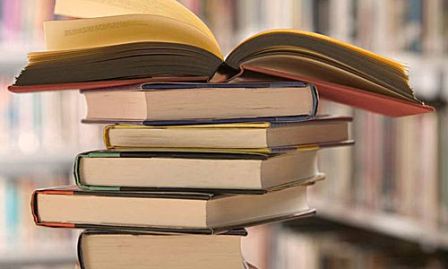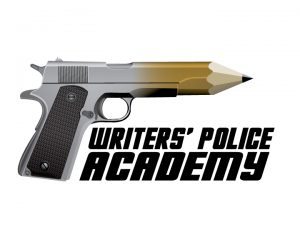25 Inspiring Biographies for Aspiring Writers
Before setting off in pursuit of literary and intellectual greatness (or at least goodness), it behooves the journeyman author to learn a few things from those that came before. Don’t get bogged down in fantasy. Take the time to read up on how successful writers—no matter their chosen genres or mediums—generate ideas and inspiration, process them, then bestow them life on paper or screen. Painting teachers often request their students to copy old masters in order to learn techniques they may uniquely, creatively build upon as their own visions begin emerging. And the exact same strategy works beautifully for the written arts in kind.
- I Know Why the Caged Bird Sings by Maya Angelou: Oftentimes cited as one of the greatest American memoirs, I Know Why the Caged Bird Sings chronicles the beloved poet’s sexual abuse, struggles with race and class divides, teen pregnancy, and how sheer willpower and bibliophilia carried her through. It’s a testament to the importance of strong character and an open-mindedness to new ideas when writing.
- A Moveable Feast by Ernest Hemingway: Ernest Hemingway’s sexy memoir of expatriate experiences in Paris is a oenophile’s dream — oh, and it also stands as one of the best peeks into Europe’s pre-WWII creative circles. Read up on his interactions with the likes of Gertrude Stein, Pablo Picasso, James Joyce, and (most famously) F. Scott Fitzgerald, with whom he shared one of the most legendary road trips ever.
- The Unabridged Journals of Sylvia Plath by Sylvia Plath: For the deepest look into the highly troubled poet’s mindset, be sure to read the uncensored journals husband Ted Hughes never touched before publication. Even readers with no desire to launch writing careers can still learn valuable lessons about the realities of mental illness (specifically, bipolar disorder, depression, and anxiety) and its frequent intersections with creativity.
- A Heartbreaking Work of Staggering Genius by Dave Eggers: In this Pulitzer nominee, Salon.com editor, McSweeney’s founder, and all-around literary Renaissance man Dave Eggers unpacks the one thing that left the greatest impact on his life. Specifically, losing both parents to cancer and winding up the exclusive caretaker of his young brother while still a young man attempting to figure out his own life.
- Narrative of the Life of Frederick Douglass by Frederick Douglass: Frederick Douglass’ memoir eventually grew into one of the undeniable cornerstones of the abolitionist movement and solidified his status as an excellent orator, writer, and activist. In his game-changing publication, he reflects the extremely inhumane conditions in which slave-owners forced others and why that needed to end.
- J.R.R. Tolkien: A Biography by Humphrey Carpenter: Because the beloved Lord of the Rings author’s family authorized this biography, readers will learn about him through family and friend interviews as well as personal notes and correspondence. Fans of literary history with or without an interest in the fantasy genre will appreciate the insight into Oxford’s legendary Inklings circle, which included his once-close companion C.S. Lewis.
- The Life and Death of Yukio Mishima by Henry Scott Stokes: Raising a private army to overthrow the Emperor probably isn’t the best course of action for wannabe writers of note, but that doesn’t mean they can’t find inspiration in Yukio Mishima’s fascinating life. Henry Scott Stokes was a good friend of the seminal author, which granted him probably the most well-rounded glimpse of his nuances.
- Confessions by St. Augustine of Hippo: Personal failings and epiphanies have fueled creative pursuits for almost as long as creative pursuits existed, but Confessions usually exists as the quintessential example. You don’t have to be religious to understand (maybe even appreciate) the author’s candidness and how his own experiences led him into theological rock-star status.
- Persepolis by Marjane Satrapi: Cartoonist Marjane Satrapi worked her trauma from the Iranian Revolution and the (sometimes subtle) displays of discrimination and racism she faced in Europe into a simultaneously tragic and hilarious graphic memoir. Through her art and writing alike, she inspires others who’ve experienced very real (and not always historical) horrors to seek solace and reveal truth through creation, not destruction.
- Tuesdays with Morrie by Mitch Albom: When the author watched his elderly sociology professor Morrie Schwartz on Nightline and learned about his ALS, he called him up and rekindled their intellectual relationship. The dying man eventually took on a mentor role during the 14 meetings they shared before his death, influencing his former student far, far beyond the literary.
- The Electric Kool-Aid Acid Test by Tom Wolfe: New Journalism’s trailblazer Tom Wolfe followed One Flew Over the Cuckoo’s Nest author and MK Ultra participant Ken Kesey and his gang (The Merry Pranksters) on a psychedelic exploration of the United States and drug subculture. Ingesting various hallucinogenic substances may not necessarily stand as the most legal route toward inspiration out there, but it exists as an option utilized by many creatives all the same.
- The Life of Samuel Johnson by James Boswell: Frequently touted as a forerunner to the modern biography — not to mention one of the all-time greatest examples of the genre in the English language — this James Boswell masterpiece covered the entire life of the ubiquitous literary giant with whom he was acquainted. So astute were his observations and inclusions, contemporary doctors wound up diagnosing Samuel Johnson’s seemingly erratic, eccentric behavior as Tourette’s Syndrome.
- The Autobiography of Alice B. Toklas by Gertrude Stein: The Autobiography of Alice B. Toklas is actually about renowned modernist and art patron Gertrude Stein rather than her eponymous lover, though she relays her own biography through that particular perspective. It covers the entirety of their time together, as well as the creative luminaries who phased in and out of the apartment during one of Europe’s most fertile, volatile eras.
- Born Standing Up by Steve Martin: Although obviously more well-known as an actor and comedian, Steve Martin certainly deserves recognition for his writings, both humorous and not-so-humorous. For him, self-expression allowed him a worthwhile conduit for the pain he felt over isolation from his parents; authors hoping to pursue their craft citing similar reasons might find this narrative useful.
- My Years with Ayn Rand by Nathaniel Branden: Pretty much everything anyone needs to know about this biography pops up right there in the title. Objectivism founder Ayn Rand’s protege and paramour (and the pioneer of self-esteem) dishes about their problematic relationship. To this day, the Atlas Shrugged author remains a polarizing figure, and reading about her here shines a more human light on what she offers literature.
- Excelsior! by Stan Lee and George Mair: The Spider-Man/X-Men/Avengers/countless others co-creator should never be mistaken as the inventor of comics, but his bombastic, campy writing style undeniably left a major impact on popular culture. Learn all about his early life, early career, and eventual success here, though do keep in mind his talent for, um, exaggeration.
- Pimp: The Story of My Life by Iceberg Slim: By age 18, Iceberg Slim already established for himself a pimping career, placing him directly in the urban underbelly which eventually fueled his literature. Critics embraced his fiction and literary nonfiction alike, believing it an accurate depiction of an often overlooked, marginalized atmosphere in serious need of assistance.
- The Diary of Anais Nin by Anais Nin: With the same eloquence as her beloved erotic fiction, the extended journals of Anais Nin romantically reflect on everything from DH Lawrence’s writings to her famous entanglements with Henry Miller and his wife June. However, her sensuality stands at odds with a discomfort toward overt sexuality — surprising, considering her oeuvre.
- Why this World: A Biography of Clarice Lispector by Benjamin Moser: After perusing the modernist’s own private writings and manuscripts, Benjamin Moser peeled back much of the mystique surrounding Clarice Lispector. No other biography comes remotely close to exploring her nuances like this one, and even those who’ve never once picked up any of her myriad works will still find her tragic and beautiful life riveting.
- Ignatius Rising by Deborah George Harvey and Rene Pol Nevils: Gut-busting tragicomedy and Pulitzer winner A Confederacy of Dunces sports a publication story as compelling as the narrative itself, though way more heartbreaking. Delve deeply into John Kennedy Toole’s complex relationship with his mother, issues with sexuality, and other factors that eventually led him to suicide before ever seeing his masterpiece go to print.
- On Writing: A Memoir of the Craft by Stephen King: Not only do On Writing readers receive quite the insight into ubiquitous horror author Stephen King’s own personal mindset and process, they also learn quite a bit about the art. It’s oftentimes cited as one of the best literary autobiographies and practicums to boot, so consider it an essential read!
- Fear and Loathing in Las Vegas by Hunter S. Thompson: You don’t have to shovel a dump truck full of hallucinogens and alcohol into the gullet every morning to learn a little something from the quintessential gonzo journalist. At once fiction and nonfiction, his most famous work delves into the frustration of finding inspiration and chasing the shattered American Dream.
- Autobiography of Mark Twain by Mark Twain: Learn all about the great American wit from his own unique perspective here, which saw publication after he died and didn’t exactly care what people thought. Completely unedited and unabridged, his autobiography should sit on the shelves of every aspirant writer around, no matter their chosen medium or genre.
- Why Be Happy When You Could Be Normal? by Jeanette Winterson: Influential LGBTQ author Jeanette Winterson’s real-life struggles between her Pentecostal upbringing and lesbian sexuality famously inspired the novel Oranges are Not the Only Fruit. This memoir unveils the realities behind her most famous work, which might inspire many up-and-comers to seek emotional solace in their own literature.
- The Life and Times of the Thunderbolt Kid by Bill Bryson: In his charming memoir, popular travel writer Bill Bryson candidly discusses growing up in Des Moines during the Cold War’s first two decades. Some of it sheds light on his later publications, but it also reveals the curiosities and quirks one can find in current amenities, inventions, family, and friends.
*Today’s article brought to you by www.onlinecollege.org






Hi Lee. I highly recommend Stephen King’s book. I’ve read it several times.
John Steinbeck kept journals while he wrote. Two of them were released posthumously. I have read both “Journal of a Novel” and “Working Days,” and enjoyed both immensely.
And that new web page looks great!